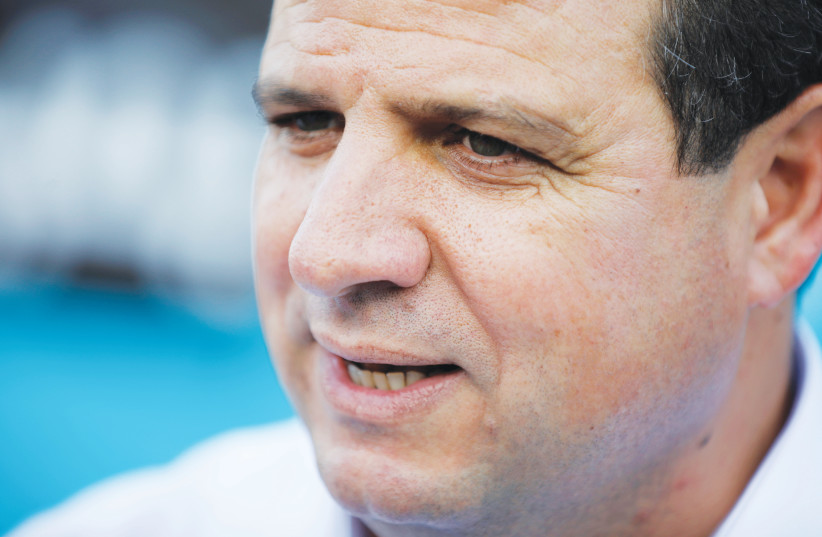Prime Minister Naftali Bennett’s December tour in the South, intended to show his commitment to stop the raging violence in the Negev, was historic.
Finally, an Israeli prime minister was demonstrating his obligation to promote the well-being of society at large, even the non-Jewish citizens who live in an area that was neglected by the establishment for years.
However, that visit raised criticism over Bennett’s decision to avoid traveling inside the Bedouin city of Rahat, which he viewed through binoculars from afar. Headlines compared the prime minister’s observation of Rahat to watching a safari.
“Two weeks after helicopters landed in the Negev [during a videoed police drill], Bennett announces a move for an attack from an observation point on Rahat,” Joint List leader MK Ayman Odeh tweeted. “Like [then-prime minister Benjamin] Netanyahu’s statement that ‘Our forces are destroying houses in Kalansuwa,’ Bennett treats the Arabs in the Negev as in a war against an enemy state, not as a government in conjunction with civilians in the country.”
While Odeh missed (probably intentionally) the main point – that we actually have now a government with Arab representation that wishes to serve the entire society – his point is valid.

Bedouin society in the Negev is more than just a bunch of mobsters, much beyond that common representation in mainstream media.
It is a society of 250,000 individuals with a wide scale of talents and qualities – doctors and academics, police and military officers, students with dreams, young men and women wishing to excel in sports and other fields.
Yet, the country still fails to provide them with the same opportunities it gives those who live in the Center. Because of the unique status of the unrecognized villages, some children walk more than two hours to get to school. Their houses are not heated in the winter or cooled in the summer. Talking about proper water infrastructure and sewage systems seems like a privilege.
Yes, there is an ongoing struggle over land and control in the Negev between Jewish and Arab extremes. Some Bedouin groups in neighboring countries are combating the same battle – the tribe’s law against the state’s law. Some Jews believe the Bedouin should be given as little land as possible to live and work on, ignoring their agricultural history and the enormous gaps between them and the rich Jewish regional councils in the Negev.
Moreover, it seems the establishment is not doing enough to include the Bedouin in the “Israeli story.”
Bennett should have gone inside the city and met local leaders there. He should have seen the state of the schools and the lack of employment opportunities there.
Listening does not mean agreeing, but it is a vital and crucial first step in including them in the colorful and diverse fabric of Israeli society.
When this starts happening, the younger generation will see that crime does not pay.
